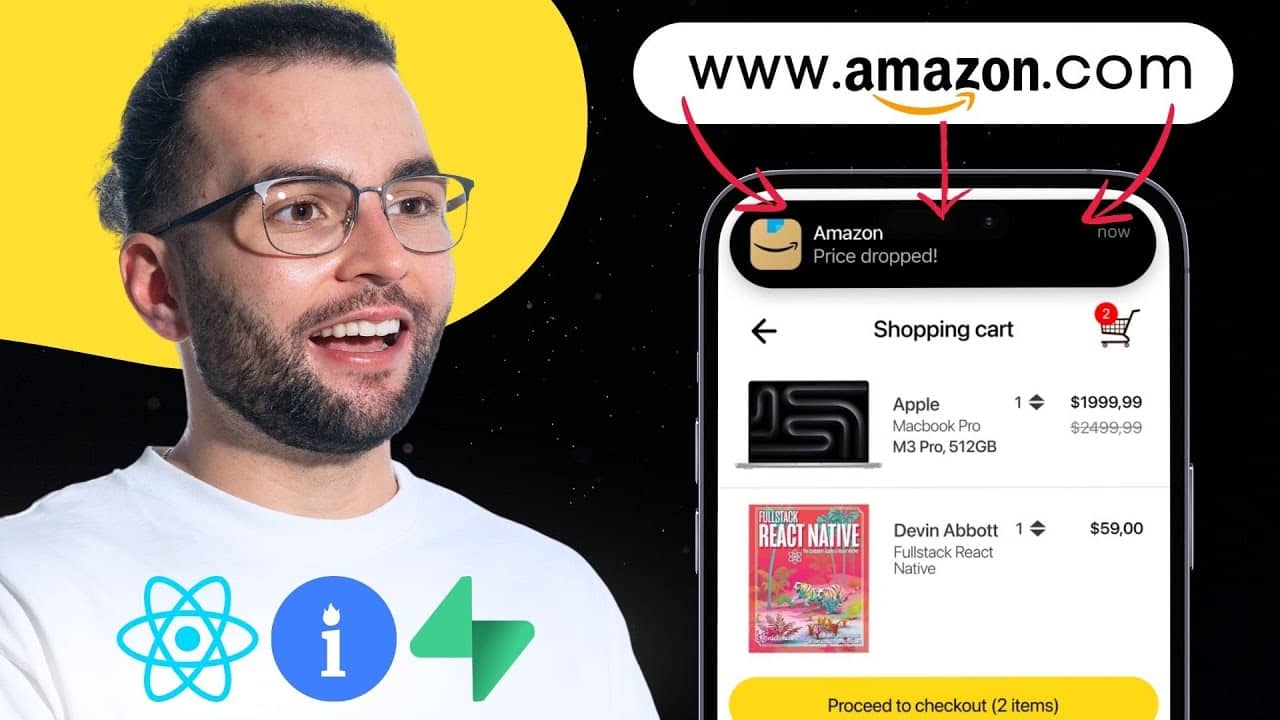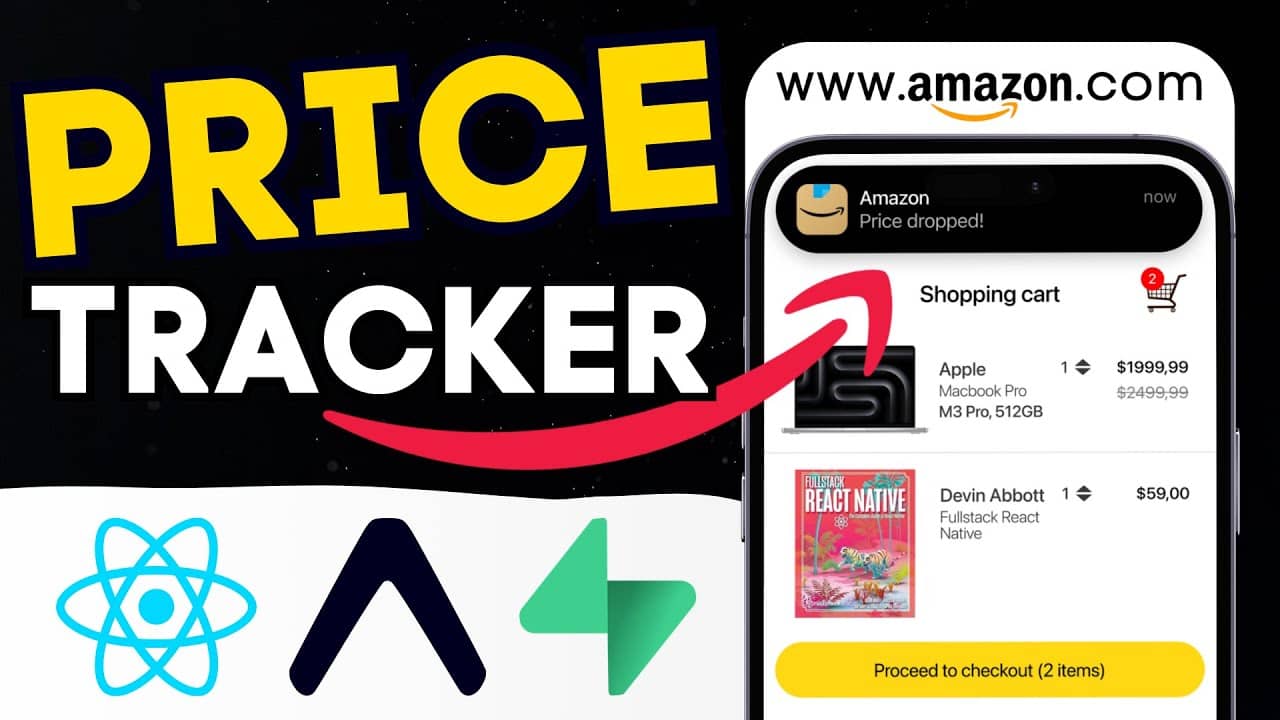Hey notJust Developers,
This week brings some exciting React Native updates! The creator of Tamagui has built a new React cross-platform framework called One. That’s crazy! Let’s dive into the two big news items:
- New React Native Framework: One 🚀
- Nitro Module Framework Launched 🔥
This issue is sponsored by RevenueCat
In-app subscriptions are a pain. The code can be hard to write, time-consuming to maintain, and full of edge cases. RevenueCat makes it simple, plus provides analytics, integrations, and tools to grow so you can get back to building your app.
Get started with RevenueCat for free, and save weeks of development time integrating In-app subscriptions.
New React Native Framework: One 🚀
So, at ViteConf this week, Nate Wienert (creator of Tamagui) introduced the new React cross-platform framework One. One is a Vite plugin (a fast tool for building web apps) and a complete solution for cross-platform development with React and React Native. Using One, you can deploy your React Native or Web app with a single setup. One allows you to target both Native and the web with one codebase (you can import react-native, which also works on the web). It replaces both Metro (JS bundler) and a separate Web framework with a single framework, using shared file-system routing (every file you create under the /app directory becomes a route). It uses the popular react-navigation to navigate on native apps (iOS & Android).
True Benefits of One 🚀
The two main features of the One framework compared to other frameworks are:
- One allows Vite to serve React Native and Web at the same time with smooth file system routing, all while hot reloading (instant updates) on both Native and Web.
- One prioritizes local-first development (works offline) with Zero (manages app data from user's input and external sources), allowing code sharing across Web and Native apps without any downsides (no performance issues).
Additionally, Vite is excellent for React Native with broad file-type support (handles many file formats), modern syntax, ESM (modern JavaScript modules), powerful tree shaking (removes unused code) and code-splitting, faster compilation, and top-notch documentation, plugins, and community support. All these features are now automatically supported in One.
Nitro Module Framework Launched 🔥
Marc from @margelo_io has released a mind-blowing Framework Nitro to build Nitro Modules (next-gen Native Modules) for React Native developers. The framework helps you to create very fast Native Modules (Ex: Camera Module) that are type-safe (safe from type errors at runtime) and statically compiled (optimized for performance before they run), all while allowing JS to interact with those Native Modules easily. This week, Marc added a new home page for the documentation.
Nitro Module Performance 🚀
Nitro is built on top of JSI (JavaScript Interface, written in C++) which makes the communication layer between JavaScript and native code (e.g., Swift, Kotlin) very lightweight and efficient. Many features, like type-checking, are compile-time only and built with C++ which introduces zero runtime overhead. Unlike Turbo Modules (created by Meta) or Expo Modules (created by Expo) for building native modules, Nitro-Modules do not use Objective-C at all. Nitro uses the new Swift <> C++ interop, which has close to zero overhead. Additionally, instead of requiring Java, Nitrobridges to Kotlin directly.
A benchmark showed that Nitro-Modules are 59x faster than Expo Modules and 15x faster than Turbo Modules. Damn, Nitro-Modules are incredibly fast! 😱
That’s it 🙌
React Native is moving quickly. For example, the new framework “One” has come out to compete with “Expo”. Additionally, exciting developments are happening, such as the new Nitro Module being better than both the Expo Module and Turbo Module. Day by day, React Native is becoming the top cross-platform framework.
🔴 Join me live
This Friday we will build a scalable API with NodeJS . It's going to be a tutorial packed with value, so set a reminder and don't miss it out 👇


🔁 In case you missed it

Build an Amazon Price Tracker with React Native, Supabase and BrightData
You'll learn how to build a fully functional Amazon price tracker app using React Native, Supabase, and BrightData. From building the User Interface to setting up the backend and scraping Amazon for live price updates, we’ll guide you through every step.
|
|

Building an Advanced Price Tracking App with React Native and Supabase
In the second part of this tutorial series, we’re diving deeper into advanced features for our Amazon price tracker app. We’ll implement automatic tracking, price history charts, real-time data updates, and set up email notifications for price drops.
|
🔥 Press worthy
1️⃣ Introducing Zeego 2.0: Dropdown & context menus that work everywhere (Release).
2️⃣ From React Native 0.77, the template will switch from Objective-C to Swift.
3️⃣ Announcing react-native-godot: Godot Game Engine now in React Native.
4️⃣ Oskar is building new “Native Bottom Tabs” to replace the “React Native JS Bottom Tabs”.
Did you learn something new today?
If you found this email valuable, forward it to one friend or coworker who can also benefit from it. That would be much appreciated 🙏
The newsletter was written by Anis and edited by Vadim Savin.
|
|
Vadim Savin
Helping you become a better developer together with the notJust.dev team
|
Whenever you’re ready, there are 3 ways I can help you:
- React Native Mastery – The Ultimate React Native & Expo Course. Build 7 real-world projects and finally master mobile development with React Native. Available NOW!
- Join us as a Sponsor - Showcase your product to mobile developers and turn them into skilled, loyal users through engaging hands-on tutorials.
Because the best marketing happens through education!
- Incubator - Our 10-week program is all about launching your app fast and generating revenue from day one. Join the waitlist to stay updated.
|
|